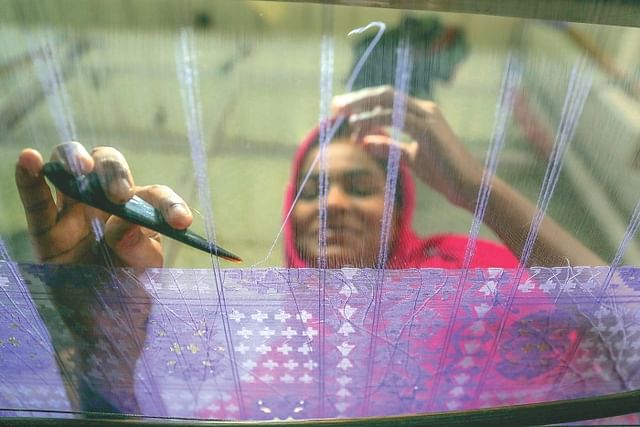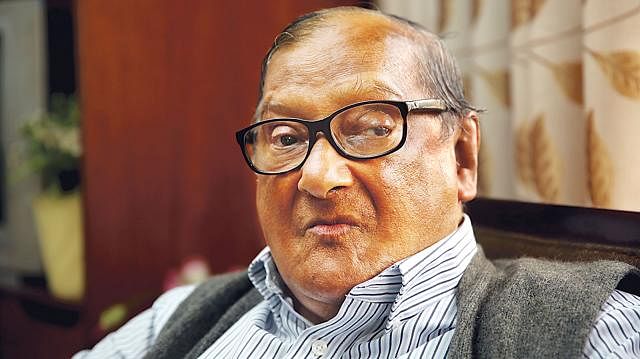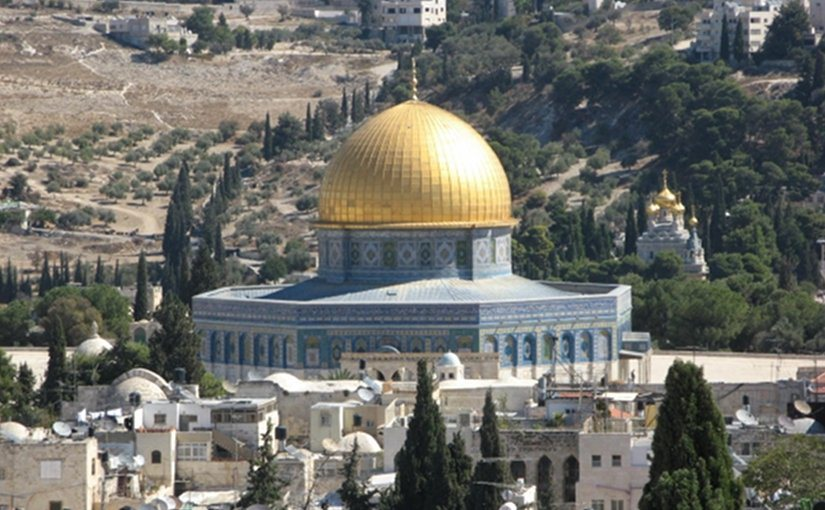
When there was uproar over the spread of COVID-19 across the world in January this year, I was busy in preparing the manuscript of a book ‘Economy of Poverty: Past, Present and Future’. The book was published at the Ekushey Book Fair. A discussion on the book was held in the second week of March. In the discussion, I said foreigners mistakenly exaggerated the poverty of Bangladesh. Bangladesh was never a beggar’s basket. The country’s reconstruction began in the seventies and the rate of growth started increasing. The rate of growth increased further in the 1980’s. And then growth increased significantly in the 1990’s. The rate of growth accelerated after the country was freed from military rule.
Just as the prospects of Bangladesh’s growth have been downplayed and understated, the eradication of poverty has also been exaggerated. But there is no scope to deny that the rate of poverty has dramatically decreased due to accelerated growth.
Growth in Bangladesh was measured on the basis of the national poverty line. There was no need for a huge per capita income to get rid of poverty. The success of the poverty eradication on the basis of national poverty line is pragmatic, but it is not complete. In this case we need to be cautious about four things.
First, the definition of poverty depends on the country’s economic class. Countries are of four economic classes: low income, lower-middle income countries, middle income and higher income countries. In 2011, the World Bank estimated that the daily income has to be 1.9 PPP dollars (purchasing power parity) in low income countries to remain above the poverty line, 3.2 PPP dollars in lower-middle income countries, 5.5 PPP dollars in middle income countries and 21.7 PPP dollars in high income countries.
We hope Bangladesh would gradually climb to the middle income country and high income country status in the next two decades. The daily income has to be 5.2 PPP dollars to climb to the middle income country status and 21.7 PPP dollars to become a high income country. This is an estimation of 2011.
We need to think whether it will be possible or not to significantly eradicate poverty in Bangladesh in comparison to the developed countries in the next two decades to rise above the poverty line and improve the poverty situation.
Secondly, a concept has been created in Bangladesh that the poverty will be completely eradicated from the country in one or two decades. But this concept is wrong. Poverty is not completely eradicated from any developed countries in the world. In 2013, 14.50 per cent of the people were poor in USA, about 15 per cent in UK and 25 per cent in European Union.
There is another definition of poverty outside of the economists’ definition. That is what percentage of the people think that they are poor. In a survey led by economist SR Osmani in 2009, some 32 per cent of people in Bangladesh think that they are poor. The number is much higher than the rate of poverty in Bangladesh.

The foundation of poverty eradication in Bangladesh is not deep-rooted. The foundation is shaky. Those who have managed to emerge from poverty in Bangladesh by merely crossing the poverty line in conducive economic environment, may go fall below the poverty line again if the environment is changed.
COVID-19 has rendered the economic success of Bangladesh vulnerable. It has not only affected public health but also the entire economy. Employment has decreased, unemployment increased and many small entrepreneurs have been virtually destroyed. The question is, will the damages and loss disappear automatically if the intensity of coronavirus falls? Optimist economists claim that the economy of Bangladesh will become normal if COVID-19 goes away. Rapid growth will resume. We will be back on track of poverty eradication. This is termed as ‘V’ growth.
Not only the Bangladesh government, but International Monetary Fund (IMF) is also optimistic of Bangladesh growth. According to IMF predictions, growth will decrease this year in comparison to last year. However, growth will be higher than India. The achievement of higher growth is good news, but not adequate. Eminent economist and Nobel Laureate Amartya Sen and his associate Jean Drèze expressed fear that the uncertain glory of post-COVID India’s fast growth may not be able to minimise the COVID-induced path of destruction.
So the question arises whether it would be easy to solve the economic problems of post-COVID Bangladesh, or will new problems have to be overcome?
I think the problem of Bangladesh’s economic reconstruction is gradually becoming difficult as there is no good governance structure. The growth of Bangladesh may stumble. Bangladesh first needs democratic system to build a good governance structure. Here the question may arise, whether democracy is essential for the continuity of growth?
Growth is being achieved in many autocratic countries of the world for long. Democracy is mainly necessary for two reasons. Firstly, history teaches that a dynasty or a party cannot stay in power permanently. When democratic elements will exist, then the change of power will take place peacefully. Secondly, votes cannot be won if the poor are not kept happy. So poverty will be eradicated quickly if the state is democratic.
The rule of law is essential for good governance. The independence of judiciary and effectiveness of police are necessary to establish rule of law.
The number of teachers has been raised. The salary of teaches has been raised. But the students and teachers are not interacting. Many teachers do not take classes. Those who take class do not teach in the class. There is doubt if any country has so much private tuition as Bangladesh
Why is the situation not improving? An easy explanation may that be the performance of the judges is not being evaluated properly. Are all the judges disposing the cases quickly, or they are piling up the cases? Are they writing verdicts instantly, or they are writing after one and a half to two years of their retirement? If a report on the evaluation of the judiciary is submitted to the parliament, and it is discussed in the media, by the civil society and in the parliament, then the situation may improve a bit.
The police department has been significantly expanded, but the quality has not improved. A human rights commission has been established. The High Court alleged a section of officials of the commission are instigating violation of human rights. The information commission has been established, but has very little impact.
The duty of police is to arrange trials of those who commit crimes including murder and rape. But the people’s rights of first information report (FIR) and general diary (GD), which are given in the constitution, have been taken away in many cases. The police do not always accept the complaints made by people. The police submit charge sheets in the cases that they accept and find proof. Only five per cent of the offenders are punished while the remaining 95 per cent of the offenders are acquitted. There is fear that the country will turn into a sanctuary of criminals where there is little chance of punishment in the case of 95 per cent of offenders.
The rule of law is necessary for the development of human resources. The meaning of human resource development is to ensure the development of the health and education of a country. The government allocates 1.5 per cent of GDP in the health sector. This allocation is inadequate. This allocation should be made double immediately. The administration in the health sector is so weak that it is not possible to spend the current allocation. Huge amount of money is being wasted.
The government has allocated money to public hospitals for the treatment of general people after the outbreak of COVID-19. We read in the newspapers about corruption in the use of the allocated money over the last nine months.
There is a high degree of failure of good governance in the education sector. The government has increased allocation in the education sector significantly. The number of teachers has been raised. The salary of teaches has been raised. But the students and teachers are not interacting. Many teachers do not take classes. Those who take class do not teach in the class. There is doubt if any country has so much private tuition as Bangladesh. Was such a downfall in the education sector expected after increasing allocations? The salary of teachers was low during the colonial rule, but the manner in which they groomed students is unimaginable.
The people of Bangladesh were ready and are ready now too to make any kind of sacrifice to protect their rights. Such creative people will certainly advance economically if they get the right leadership.
Ashok Mitra did not know how to prepare for the examination. He consulted his acquaintances and they advised him to meet Sushovon Sarker, the principal of Presidency College.
Ashok met Sushovon Sarker and sought help. Sushovon Sarker said he needed one week to see whether he could help or not. After one week, Sushovon Sarker agreed to teach him history.
When asked why he had needed one week to decide, Sushovon Sarker said he didn’t have any updated books on these subjects. He bought some books with his own money and studied those. Sushovon Sarker then delivered lectures carefully for an hour for three days in a week. Ashok Mitra took notes of his lectures. Sushovon Sarker took nine months to finish the curricula.
As a result of this private tuition, Ashok Mitra stood second in the ICS examination by obtaining 72 per cent of marks in six papers. Ashok Mitra benefitted in two ways. First, while studying English at Presidency College, he had failed to attain perfection. But he learnt to write English skillfully by listening to the lectures of Sushovon Sarker.
There is no about that we have many problems. The question arises, how will we solve these problem? There is no reason to fear. If we start our journey towards good governance, we will be able to reach our goal soon. The history of Bangladesh has taught us to be optimistic. The freedom fighters of Bangladesh achieved independence fighting against the misrule of the Pakistan. In post-liberation Bangladeshi, poor farmers increased rice production four-fold despite all odds. Bangladeshi women, deprived of education, brought about revolutionary changes in the readymade garment sector and Bangladesh has become a major RMG export country.
Bangladesh’s less educated and uneducated workers have gone abroad and worked hard, solving foreign currency crisis. They have also brought happiness to their families.
The rule of the Pal dynasty was established in democratic system in 8th century Bangladesh. The people of Bangladesh were ready and are ready now too to make any kind of sacrifice to protect their rights. Such creative people will certainly advance economically if they get the right leadership.
*This write-up, originally published in Prothom Alo print edition, has been rewritten in English by Rabiul Islam.









